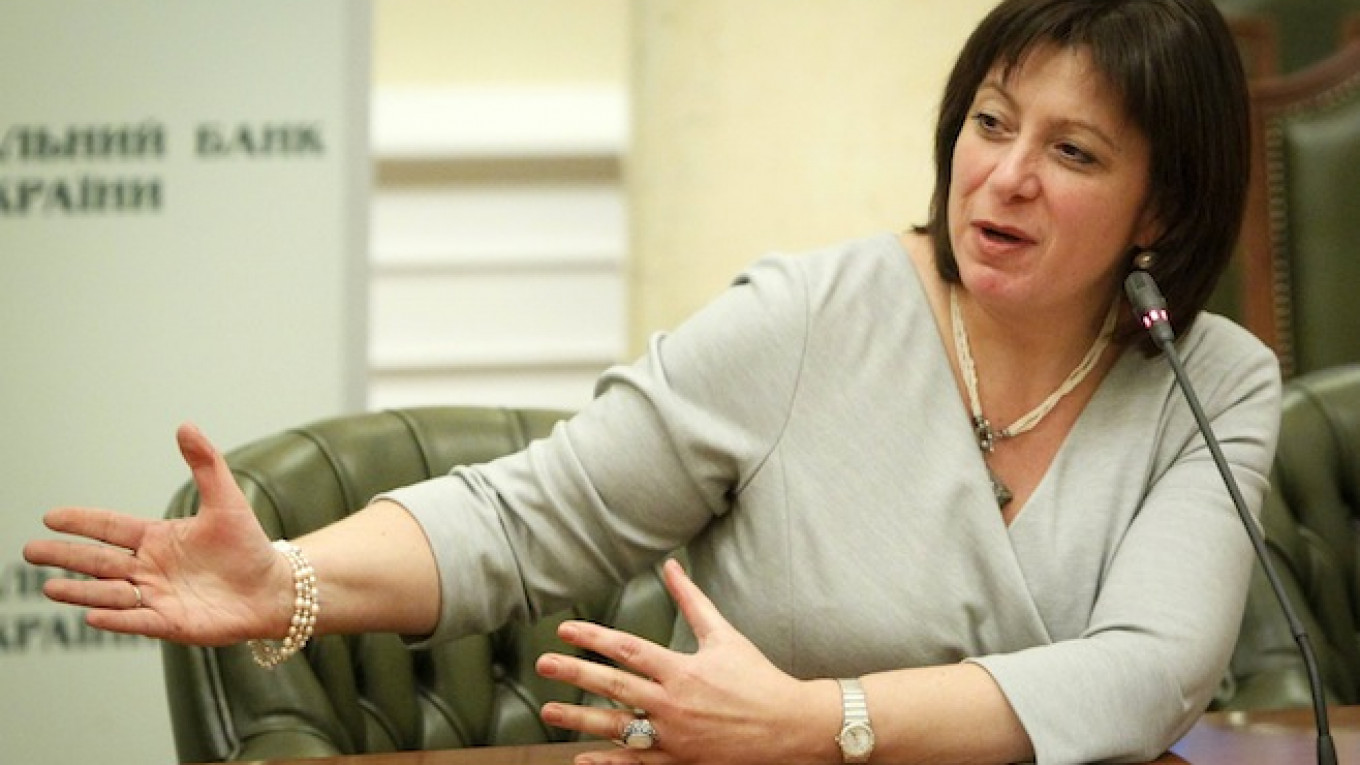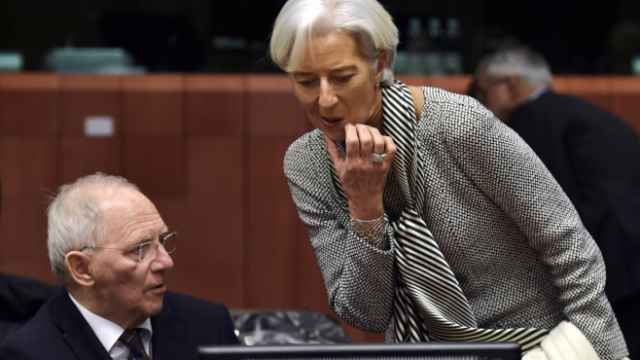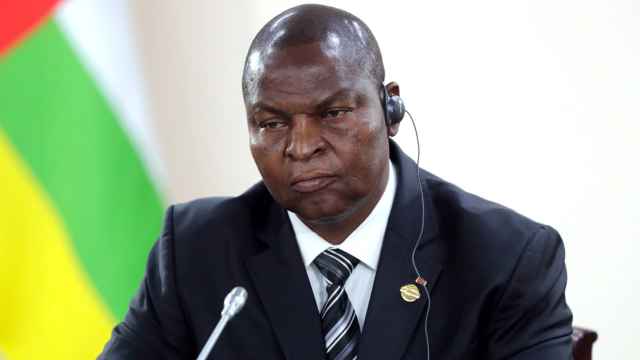Investors who bought Ukrainian bonds as a punt on a high-yield market backed by the West will probably have to write off a major part of the investment as their share of an IMF-led bailout for Kiev.
Some creditors might hope to follow a minority of Greek bondholders who eventually recovered their investment after the majority accepted a restructuring of the country's debt in 2012.
But Ukraine, as the country's finance minister points out, lacks the wealthy, albeit grudging euro zone backers that Athens has, and its $40 billion bailout is modest compared with the 240 billion euro Greek rescue.
Finance Minister Natalia Yaresko wants bondholders to provide $15.3 billion in debt relief over four years. This would be achieved by extending the debt's maturities, cutting the interest it pays, and writing down the principal in a "haircut."
Creditors are preparing for battle, not least Russia, which is locked in conflict with Ukraine and holds $3 billion worth of the bonds.
Franklin Templeton investor Michael Hasenstab, who has staked 4 percent of his $70 billion fund on Ukraine, has set up a creditors' group, while another is mobilising around Rothschild. All say they will not accept a haircut.
Sovereign and state-guaranteed bonds maturing in 2015-2018 amount to $14.8 billion in principal and $4.2 billion in interest, including the bonds held by Russia, Deutsche Bank estimates.
Many creditors have therefore suggested that most of the relief that Yaresko wants under the IMF plan could be achieved merely by delaying repayments. Another bailout target, reducing Ukraine's debt to 70 percent of its annual GDP by 2020 from around 100 percent now, could be reached as a recovering economy grows and the hryvnia currency regains value, they argue.
But Yaresko has ruled this out. And a source close to the debt talks said that without "significant" restructuring, Kiev would soon be in trouble again.
The case of Ukraine, sandwiched between the European Union and Russia, is as much geo-political as economic.
Philip Poole, head of research at Deutsche Asset and Wealth Management, drew parallels with a restructuring of Poland's debt in 1991 as the Soviet Union disintegrated.
"In Poland's case, there was a desire by the West to prise it away from the Soviet Union. Now there is a desire to help Ukraine, so Western governments are likely to take a view that the private sector needs to stump up," said Poole, who sat on committees that helped to restructure emerging market debt via so-called Brady bonds in the 1980s and 1990s.
Current prices suggest a 40 percent haircut in the principal or face value of the bonds, a maturity extension of 15 years and an exit yield of 12 percent, according to a model developed by Exotix.
Exit yield is the market's forecast of the value of Ukrainian sovereign bonds after a restructuring. The higher the exit yield, the lower investors' assessment of the value of new bonds that would be issued in place of old debt.
Haircut
Privately, some bondholders accept the conflict in eastern Ukraine and the deteriorating economy mean that without major debt relief Kiev will return to the creditors' table within a few years. Also, after the Greek experience, international lenders are unwilling to rescue countries at the taxpayers' expense while private creditors still get paid.
"It has become standard policy at the IMF that when they agree to restructuring programs they tell the debtor to impose haircuts on private lenders. It would have been a huge surprise if they had not demanded haircuts," one bondholder said.
The targets of the IMF-led bailout are consistent with extending maturities beyond 10 years and a "moderate" 35-40 percent haircut on bonds issued by the government and state-owned enterprises, Deutsche Bank analysts told clients. Exit yields would be 10-12 percent, they said.
JPMorgan calculates that a maturity extension and 60 percent reduction in interest payments would save $15 billion in the next four years. In that case, net present value — a measure of the worth of future bond interest payments in current terms — falls to under 30 cents in the dollar from around 40 now, they say, advising clients to stay underweight.
Goldman Sachs estimates that to make its debts affordable, Kiev must impose a haircut of at least 70 percent on an NPV basis and cut principal by around 45 percent.
Big Creditors
Russia has not responded to invitations to the talks, arguing its bonds must be classed as sovereign debt that is dealt with at the Paris Club of creditor governments.
But while Russia can block proposals on its own $3 billion holdings, it cannot prevent restructuring of the other bonds, should it want to use this to exert pressure on Ukraine.
Kiev's other big creditor, Templeton, may have to agree a haircut; otherwise the bonds will become "distressed" and their value will fall further.
But Duke University law professor Mitu Gulati predicts Templeton — and Russia — will actively block restructuring. He notes Greece paid private investors who refused to accept the restructuring deal 100 percent of their bonds' face value, while others accepted a 75 percent writedown.
"The market has learned that if you have a blocking position you have a very strong position. Ukraine will pay the price for that," Gulati said.
A Message from The Moscow Times:
Dear readers,
We are facing unprecedented challenges. Russia's Prosecutor General's Office has designated The Moscow Times as an "undesirable" organization, criminalizing our work and putting our staff at risk of prosecution. This follows our earlier unjust labeling as a "foreign agent."
These actions are direct attempts to silence independent journalism in Russia. The authorities claim our work "discredits the decisions of the Russian leadership." We see things differently: we strive to provide accurate, unbiased reporting on Russia.
We, the journalists of The Moscow Times, refuse to be silenced. But to continue our work, we need your help.
Your support, no matter how small, makes a world of difference. If you can, please support us monthly starting from just $2. It's quick to set up, and every contribution makes a significant impact.
By supporting The Moscow Times, you're defending open, independent journalism in the face of repression. Thank you for standing with us.
Remind me later.






